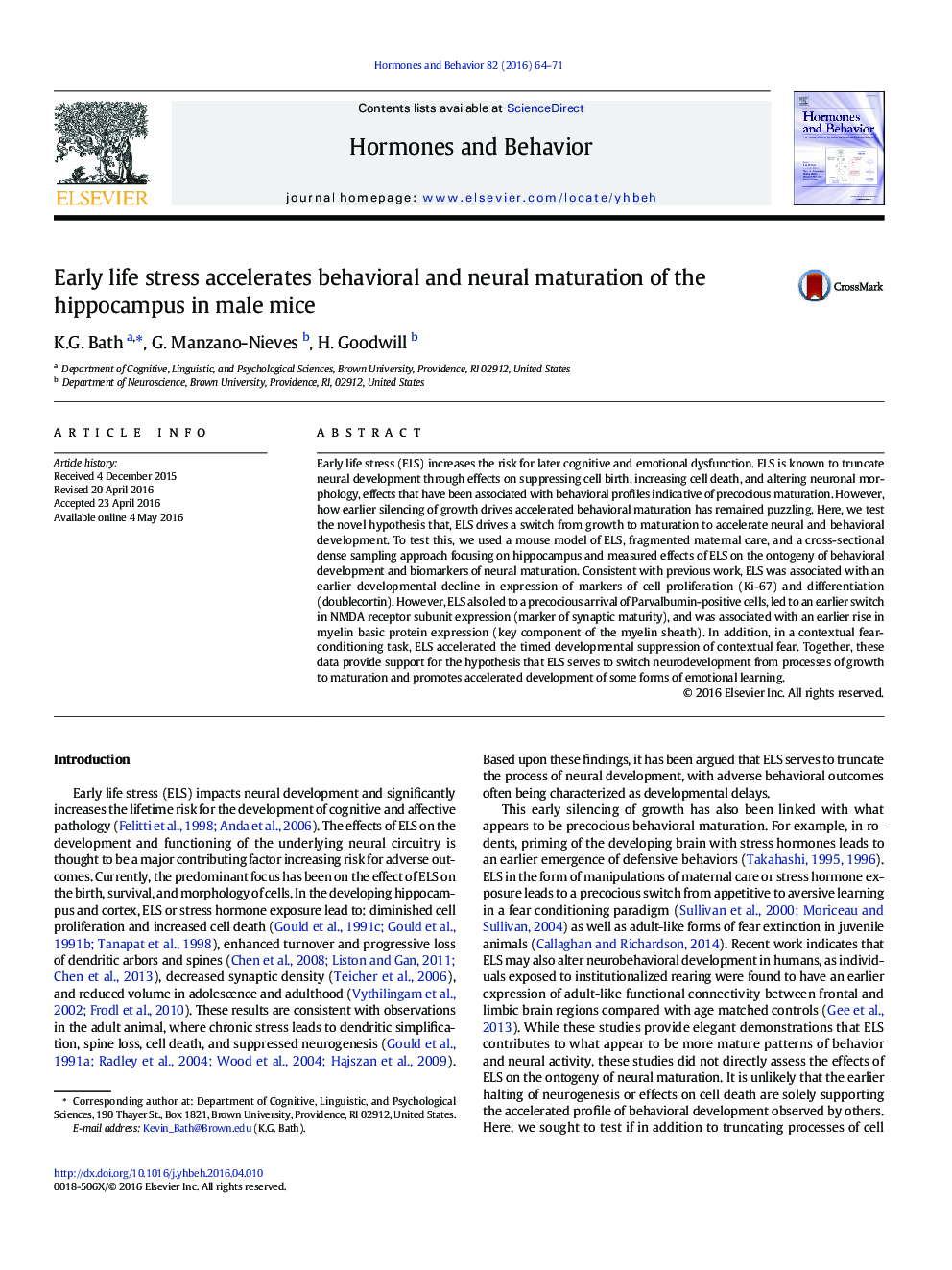| Article ID | Journal | Published Year | Pages | File Type |
|---|---|---|---|---|
| 322676 | Hormones and Behavior | 2016 | 8 Pages |
•ELS accelerates developmental changes in expression of fear learning.•ELS leads to precocious arrival of PV-positive cells in the hippocampus.•ELS effects on early maturation may have short term benefits.
Early life stress (ELS) increases the risk for later cognitive and emotional dysfunction. ELS is known to truncate neural development through effects on suppressing cell birth, increasing cell death, and altering neuronal morphology, effects that have been associated with behavioral profiles indicative of precocious maturation. However, how earlier silencing of growth drives accelerated behavioral maturation has remained puzzling. Here, we test the novel hypothesis that, ELS drives a switch from growth to maturation to accelerate neural and behavioral development. To test this, we used a mouse model of ELS, fragmented maternal care, and a cross-sectional dense sampling approach focusing on hippocampus and measured effects of ELS on the ontogeny of behavioral development and biomarkers of neural maturation. Consistent with previous work, ELS was associated with an earlier developmental decline in expression of markers of cell proliferation (Ki-67) and differentiation (doublecortin). However, ELS also led to a precocious arrival of Parvalbumin-positive cells, led to an earlier switch in NMDA receptor subunit expression (marker of synaptic maturity), and was associated with an earlier rise in myelin basic protein expression (key component of the myelin sheath). In addition, in a contextual fear-conditioning task, ELS accelerated the timed developmental suppression of contextual fear. Together, these data provide support for the hypothesis that ELS serves to switch neurodevelopment from processes of growth to maturation and promotes accelerated development of some forms of emotional learning.
